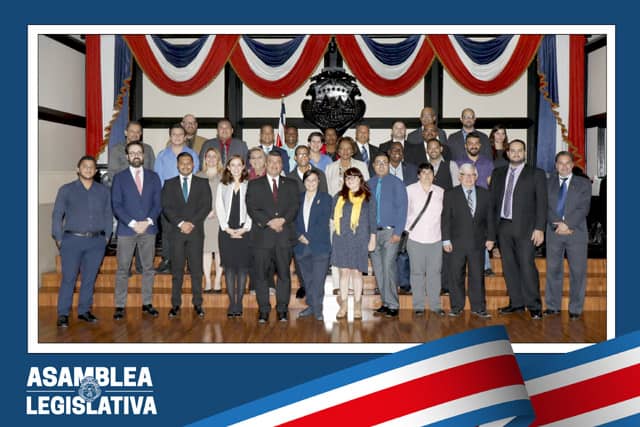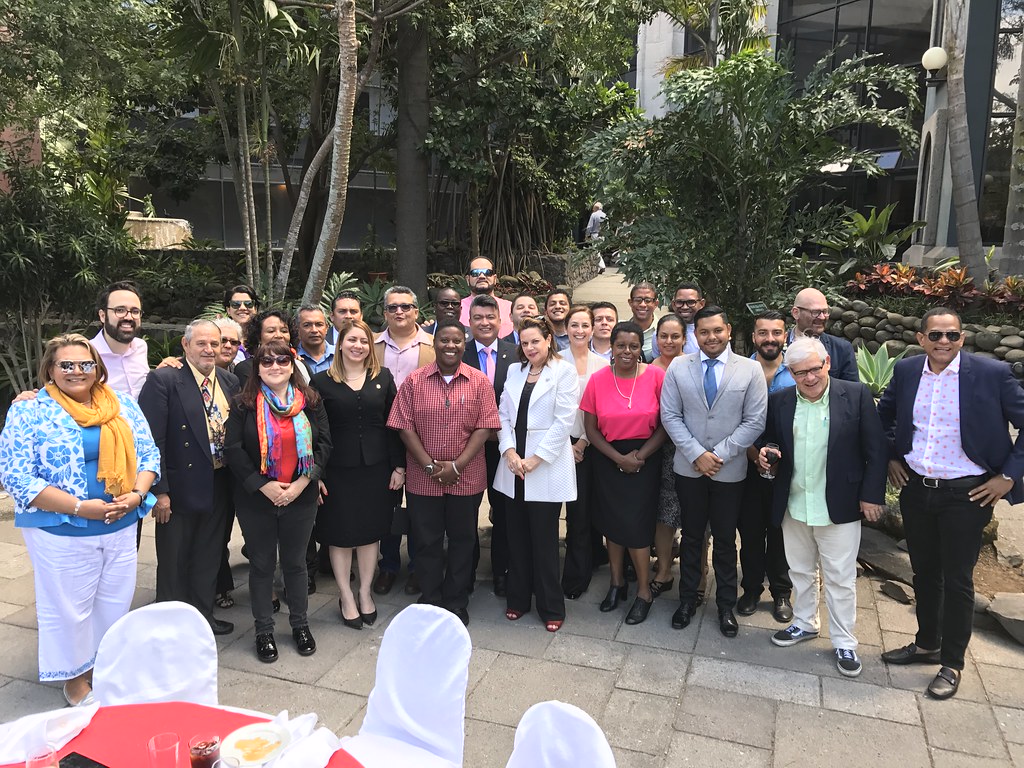
March 9-10, 2017 | San José, Costa Rica
Parliamentarians for Global Action (PGA), in collaboration with the Legislative Assembly of Costa Rica and its PGA National Group, organized a Seminar on “Sharing Experiences and Stories among Parliamentarians to Advance Equality and Non-Discrimination on the basis of Sexual Orientation and Gender Identity in Latin America and the Caribbean” in San José on March 9-10, 2017.
The Seminar brought together parliamentarians from Antigua and Barbuda, Belize, Costa Rica, Dominican Republic, Suriname, and Trinidad and Tobago and representatives from civil society organizations of Belize, Costa Rica, Dominican Republic, Saint Lucia, and Suriname.
The two main objectives of the Seminar were to:
- Provide a platform for parliamentarians and Lesbian, Gay, Bisexual, Trans, and Intersex (LGBTI) activists from the region to exchange experiences, lessons-learned, and current challenges, in order to foster frequent collaboration to prevent and eliminate discrimination based on SOGI in their countries; and
- Present “Advancing the Human Rights and Inclusion of LGBTI People: A Handbook for Parliamentarians” (the SOGI Handbook), a joint publication by PGA and the United Nations Development Program (UNDP) with useful and practical information, which seeks to promote initiatives for inclusion and contribute to the review of the national legal framework in accordance with regional and international human rights law.
Other participants were: Dip. José Alberto Alfaro Jiménez, President of the Legislative Assembly of Costa Rica, who made welcoming remarks during the inauguration session, Dip. Marta Arauz Mora, Second Secretary of the Directory of the Legislative Assembly, and Mr. Juan Manuel Cordero González, Deputy Ombudsman, representing the Defensoría de los Habitantes de Costa Rica. From civil society, there was an important participation of several organizations, both as panelists and in attendance, such as Acceder, Beso Diverso, CIPAC, Diversity Movement, Diverse Chamber of Commerce of Costa Rica, Front for Equal Rights (FDI, in Spanish), ISCA, Lesbian Feminist Collective Irreversibles, Lutheran Church, Mulabi/Espacio Latinoamericano, Trans Men of Costa Rica, and Transvida.
Representatives from the Governments of Canada and the Netherlands and from the UN system in Costa Rica also attended. Please find a full list of participants here.
Ms. Ana Helena Chacón Echeverría, Second Vice President of the Republic of Costa Rica, an important ally to the LGBTI community in the country, accompanied participants at the closing lunch hosted by the Legislative Assembly.
The main themes that emerged from the discussions were the importance and necessity of:
- Emphasizing the supremacy and centrality of human rights, which should be a non-negotiable priority, above and beyond party affiliation, religion, or other considerations.
- Educating and sensitizing parliamentarians (for example, by leveraging tools like the SOGI Handbook) and the general population about the terminology around, the problems affecting, and the rights of LGBTI people.
- Creating spaces for dialogue between parliamentarians and civil society activists and giving voice to the different groups within the LGBTI population.
- Building broad alliances and employing smart political tactics to advance the LGBTI agenda.
- Distinguishing between a private sphere where people are free to practice their religion and a public sphere where the rule of law must take preeminence over religious beliefs and the State must guarantee the fundamental rights of all, without discrimination.
- Being sensitive to the specificities of the different groups within the LGBTI community and paying attention to the intersectionality of sexual orientation, gender identity and expression, and sex characteristics with other factors such as race, socioeconomic status, level of education, etc.
Please see a detailed Report of the Seminar interventions here and an Executive Summary of the main points discussed here.
Participating parliamentarians adopted a document entitled San José Commitments to Action pledging to take, upon their return to parliament and within three months of the Seminar, a list of concrete and feasible actions in order to advance the equality and inclusion of LGBTI persons in their countries. These commitments were reached in collaboration with LGBTI activists present at the Seminar and using the SOGI Handbook as guidance.
Next steps:
- Support and follow up the implementation of the San José Commitments to Action;
- Build on collaboration with national parliaments and civil society organizations represented at the Seminar, as well as with the Costa Rican Defensoría de los Habitantes (Office of the Ombudsperson), other National Human Rights Institutions, the United Nations, and other intergovernmental organizations; and
- Launch an online platform with content from the SOGI Handbook and other news and resources, as part of a wider outreach and communications strategy to sensitize parliamentarians about the rights of LGBTI people and mobilize them to action.
This activity was possible thanks to the generous support of the Global Equality Fund administered by the United States State Department.
PGA would also like to acknowledge the generous support of the Arcus Foundation, the Open Society Foundations, the Sigrid Rausing Trust, and Oak Foundation to PGA’s Parliamentary Campaign against Discrimination based on Sexual Orientation and Gender Identity (SOGI Campaign).
Contact:
Mónica Adame
Program Director
Gender, Equality and Population Program
E:




